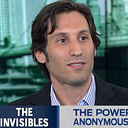Member-only story
Experts Are Not Oracles
On February 13, Michael Osterholm, an infectious disease expert who is heavily quoted in the media, and who served on Biden’s Covid-19 advisory board, warned that a forthcoming surge in Covid-19 cases would be a roadblock for the president’s plan to reopen schools.
“I think this discussion’s going to be all for naught soon,” Osterholm said, referring to schools. “When B117 takes over in six weeks or so, I think our whole country is going to be approaching its darkest days with this virus.”
It is now March 29, more than six weeks later. His dire prediction does not seem to have borne out.
When we look at mortality, a far more important metric than cases,* that trend refutes Osterholm’s warning even more than when looking at cases (though deaths lag cases, so it remains to be seen whether the small rise in cases in roughly the past two weeks will lead to a similar small rise in deaths).
Doubling down, on March 7, three weeks ago, Osterholm ominously threatened that we were in “the eye of the hurricane.” “It appears things are going very well,” he said, “but what we know is about to come upon us is the situation with the B117 variant.” We cannot let up on any of the public health measures we’ve taken, he said.
Osterholm’s faulty predictions matter because they cast doubt upon the safety of school reopenings, and he has been cited by Randi Weingarten, the president of the American Federation of Teachers, as an authoritative source on whether and how schools can reopen.
Experts are entitled to make mistakes. And I don’t fault Osterholm or others for trying their best to make predictions. But we — journalists, and the public — should hold them to account when their predictions have proven to be incorrect, and bracket any new predictions they make with mentions of their track record.
It’s certainly possible that cases and deaths will begin to skyrocket any day now. Or they may not. Who knows? But, regardless of how lyrical his meteorological metaphors are, it appears Osterholm has no better idea on the future of the virus than anyone else. The only hurricane that should keep kids out of school is one predicted by a weather forecaster.
*It’s also worth noting that while case rates have tended to roughly mirror the trajectories of hospitalizations and mortality rates, that parallel will likely break as more and more of the most vulnerable people become vaccinated. So following case counts will be less relevant as a predictor of the spread of serious illness.
